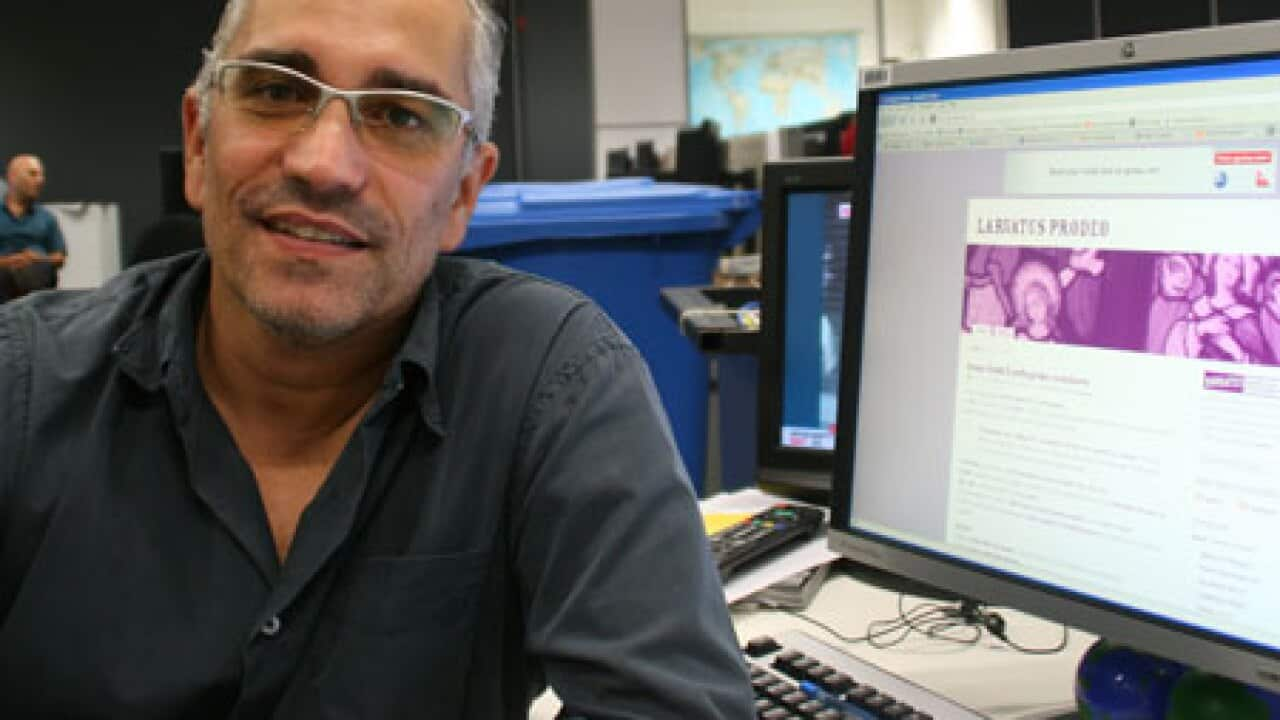The term 'blog' is a contraction of the words 'web log' and usually refers to a website run by an individual writer whose entries appear in reverse chronological order.
With the evolution of blogs, the term has evolved into a verb ('to blog'), and morphed into a name for video pieces, called 'vlogs'. SBS' Phil Gomes, who has been blogging ever since the simplest blog sites sprang up, takes a good look at where blogs began and how they have changed.
Blogging? What's that? Why would you want to do that? And who would read your daily ravings? Even today when I think back to hearing those words I still laugh. But today the questions have changed and blogging has morphed into something with a fancy new name, social media. It's no longer why, increasingly it's why not? More amusing is that many are blogging and don't even realise it. Not recognising that what they do on Facebook or Twitter is a kind of blogging. Internet years are like dog years and in 2010, after blogging since the early part of the last decade, it feels like I've been doing it forever. Beginning some time in 2002, my own blogging has evolved as the technologies that drive blogs and similar social media have evolved. And my personal path to today is littered with the bones of long dead words, pictures and video as I moved from one social media experiment to another. As an inveterate early adopter of new technology I find myself living more and more of my life online, but what I do now and how I do it is vastly different to what I did then, though the impulse to communicate is the same. Today, along with social media tools like Facebook and Twitter I use micro blogs like Posterous, and audio blogs like Audioboo which straddle the world of the desktop computer and mobile phone. And coming up fast is a different kind of blog, like Foursquare and Brightkite, driven by smart internet connected mobile phones with geo-location capabilities. Mobile geo-location is a development sure to spark further debate and questions about how we define privacy and how openly we live our lives online. These allow users to not only publish stuff to their friends and followers, they show those friends or followers your location and alert them and you through 'push' notifications on your phone. This puts the online world of blogging in your pocket and connects your online life to the one you live in real life - bringing the two worlds together. Now on hearing about geo-location a lot of folks I'm connected to on Twitter and Facebook say to me, 'why on earth would you want to do that?' Well that question instantly teleports me back to 2002 when I first replied, why not? Over time I've seen blogging mature into something millions of people do on a daily basis in any number of ways in that guise of social media, which today is a ubiquitous and increasingly diversified form of communication. Blogging when blogging was still young was hard for the technically challenged like me, the tools were primitive by today's standards, getting your voice heard was difficult and making easy connections to like minded bloggers took time. Today online communication is easy, blogging now comes in all shapes and sizes, just click a button and you're published and connected. But the principles that were first established in blogging's earliest days are now embedded into just about every form of media creation. 'Why not' is the simple impulse to have a voice, connect with a variety of interesting and intelligent people and share stuff - that's blogging. But the biggest change I've seen in blogging is how it has evolved into different forms - showing it's resilience and strength - allowing everyone to connect, converse and share in any way they wish. In many ways blogs were the foundation and creator of the modern social web, having mass popularised the kinds of conversations, connections and sharing we see today. Bloggers like me thought we were going to change the world, and in some ways we did, conversation, connecting and sharing online is not only a cultural phenomena but is as natural as it is in real life.

